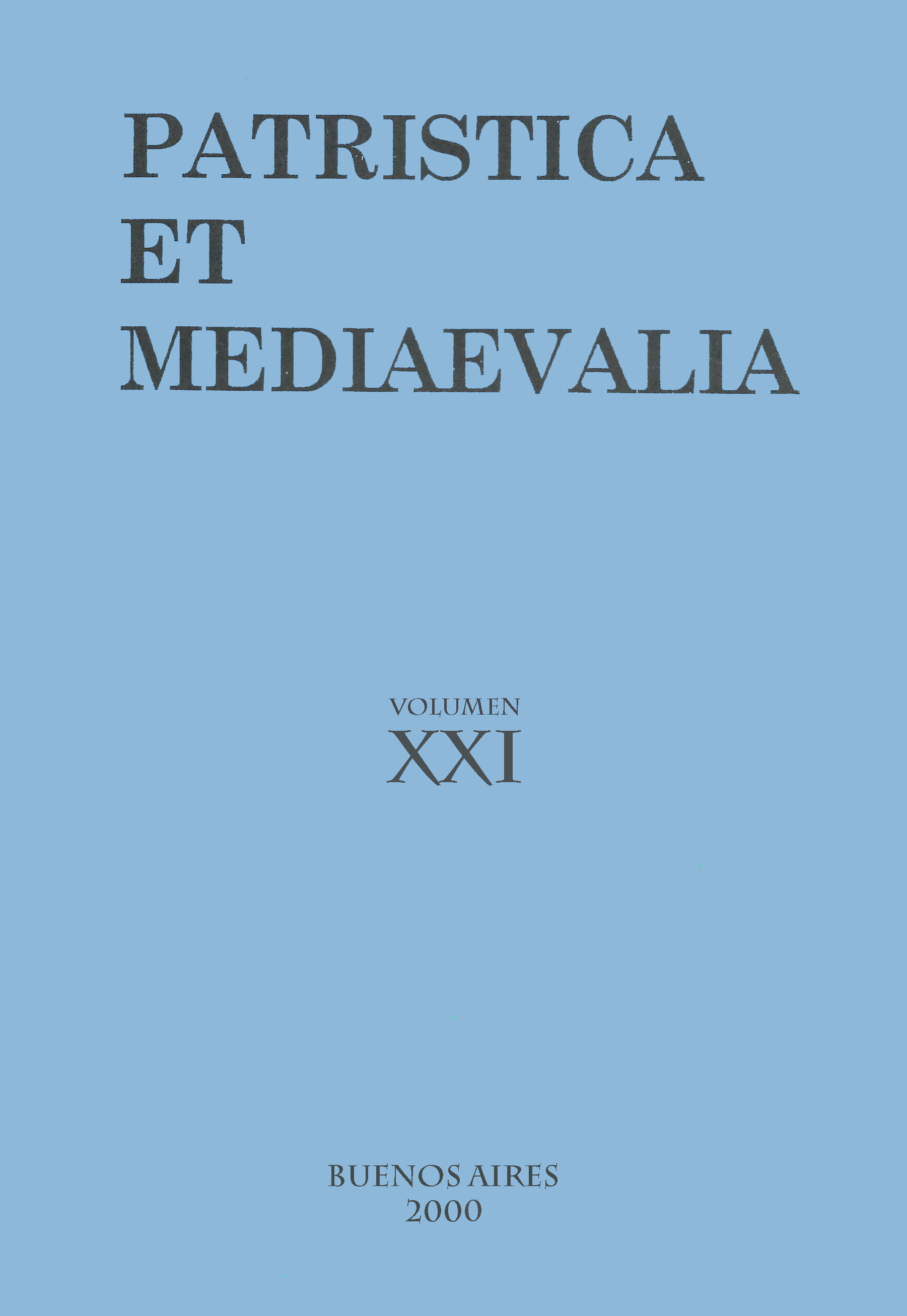The Reception of Aristotle's Politics and the Development of the Concept of State in the Late Middle Ages in Thomas Aquinas and Marsilius of Padua
Abstract
The author analyzes the contribution of Aristotle’s Politics to the process of separation between theology and politics, in which the predominance of political theology concludes. He emphasizes specially three aspects of Aristotelian thought and their influence on this process: Aristotle answers the question about the origins of state authority; he considers the human community as a genuine dimension of the reality; his practical philosophy offers elements to distinguish between politics and ethics. Finally, the author studies the autonomy of politics in the political thought of Aquinas and Marsilius of Padua.Downloads
References
Bien, G. (1973). DIe Grundlegung der politischen Philosophie bei Aristoteles. Freiburg/München: Alber.
Brunner, O. (1964). Vom Gottesgnadentum zum monarchischen Prinzip. Der Weg der europäischen Monarchie seit dem hohen Mittelalter. En Hoffmann, H. H. (Hg.). Die Entstehung des modernes souveränen Staates. Köln/Berlin: Kiepenheuer u. Witsch, 115-136.
Carlyle, R. W & Carlyle, A. J. (1971). A HIstory of Medieval Political Theory in the West, vol. V: The Political Theory of the Thirteenth Century. Edinburgh/London: William Blackwood and Sons (1st edition: 1928).
De Lagarde, G. (1970). La naissance de l’esprit au déclin du Moyen Âge, vol. 3: Le Defensor pacis. Lovaine/Paris: Béatrice-Nauwelaerts.
Dod, B: G. (1982). Aristoteles latinus. En Kretzmann, N. et al. (eds.). The Cambridge History of Later Medieval Philosophy. Cambridge: Cambridge University Press, 45-79.
Flueler, Ch. (1992). Rezeption und Interpretation der aristotelischen Politika im späten Mittelalter. Amsterdam: B. R. Grüner.
Gilson, E. (1953). Dante und die Philosophie. Freiburg: Herder (ed. Francesa: 1939).
Grabmann, M. (1934). Studien über den Einfluss der aristotelische Philosophie auf die mittelalterlichen Theorien über das Verhältnis von Kirche und Staat. München: Verlag der Bayerischen Akademie der Wissenschaften.
Grabmann, M. (1941). Die mittelalterlichen Kommentare zur Politik des Aristoteles. München: Verlag der Bayerischen Akademie der Wissenschaften.
Haverkamp, A. (1984). Aufbruch und Gestaltung. Deutschland 1056-1273. München: C. H. Beck.
Kluxen, W. (1980). Philosophische Ethik bei Thomas von Aquin. Hamburg: F: Meiner (1st edition: 1964).
Kluxen, W. (1981). Glück und Glücksteilhabe. Zur Rezeption der aristotelischen Glückslehre bei Thomas von Aquin. En Bien, G. (Hg.). Die Frage nach dem Glück. Stuttgart: Friedrich Frommann Verlag Gunther Holzboog, 77-91.
Maier, H. (1962). Die Lehre der Politik an den deutschen Universitäten vornehmlich vom 16. bis 18. Jahrhundert. En Oberndörfer, D. (Hg.). Wissenschaftliche Politik, Eine Einführung in Grundfragen ihrer Tradition und Theorie. Freiburg: Rombach, 59-116.
Maritain, J. (1935). Von der christlichen Philosophie. Salzburgo: A: Pustet.
Murdoch, J. E. (1975). From Social into Intellectual Factors: an Aspect of the Unitary Character of Late Medieval Learning. En Murdoch, J. E. & Syllable’s, E. (eds.). The Cultural Context of Medieval Learning, Proceedings of the First International Colloquium on Philosophy, Science, and Theology in the Middle Ages — September 1973. Dordrecht/Boston: 271-348.
Pesch, O. H. (1977). Das Gesetz (deutsche Thomas-Ausgabe, tomo 13). Heidelberg.
Scholz, R. (1903). Die Publizistik zur Zeit Philipps des Schönen und Bonifaz’ VIII. Ein Beitrag zur Geschichte der politischen Anschauungen des Mittelalters. Stuttgart: F. Enke.
Strayer, J. R. (1975). Die mittelalterlichen Grundlagen des modernen Staates. Köln/Viena: Böhlau Verlag.
Torrell, J. P. (1995). Magister Thomas, Leben und Werk des Thomas von Aquin. Freiburg: Herder.
Wieland, G. (1981). Ethica - Scientia practica. Die Anfänge der philosophischen Ethik im 13. Jahrhundert. Münster: Aschendorff.
Wieland, G. (1985). Plato oder Aristoteles? Überlegungen zur Aristoteles-Rezeption des lateinischen Mittelalters. Tijdschirft voor Filosofie, 47, 605-630.
Wieland, G: (1987). Rationalisierung und Verinnerlichung. Aspekte der geistigen Physiognomie des 12. Jahrhunderts. En Beckmann, J. P. et al. (Hrsg.). Philosophie im Mittelalter. Entwicklungslinien und Paradigmen. Hamburg: Meiner, 61-79.
1. The authors who publish in this magazine accept the following conditions:
-
They retain the copyright and grant to the magazine the right of the first publication, with the work registered under the Attribution-ShareAlike 4.0 International License that allows third parties to use what is published as long as they mention the authorship of the work and the first publication in this magazine.
-
They can make other independent and additional contractual agreements for the non-exclusive distribution of the version of the article published in this magazine (eg. include it in an institutional repository or publish it in a book) provided that they clearly indicate that the work was first published in this journal.
-
They are allowed and recommended to publish their work on the Internet (for example on institutional or personal pages).
2. AutoArchive Conditions. Authors are allowed and encouraged to distribute post-print electronic versions of their manuscripts because it promotes their circulation, a possible increase of quotation and a major reach among the Academic community. Color RoMEO: blue.













